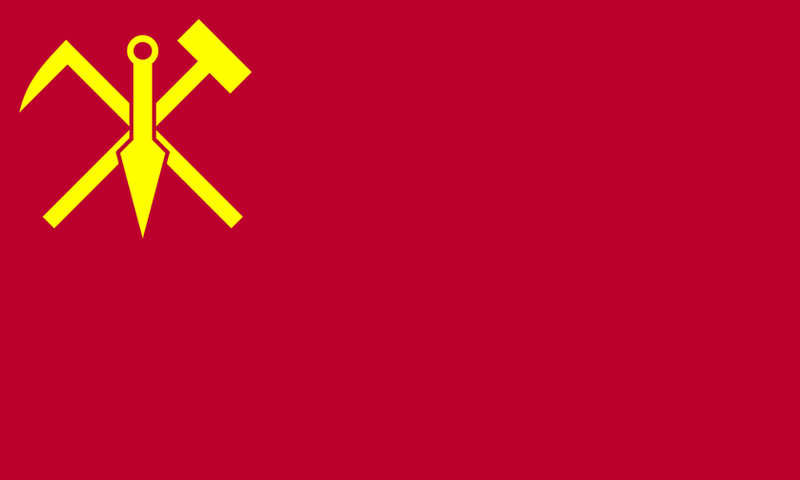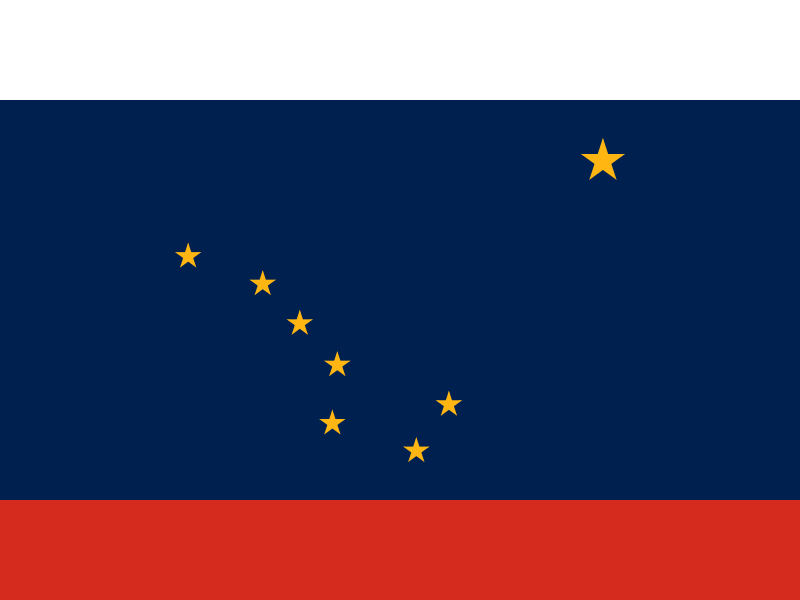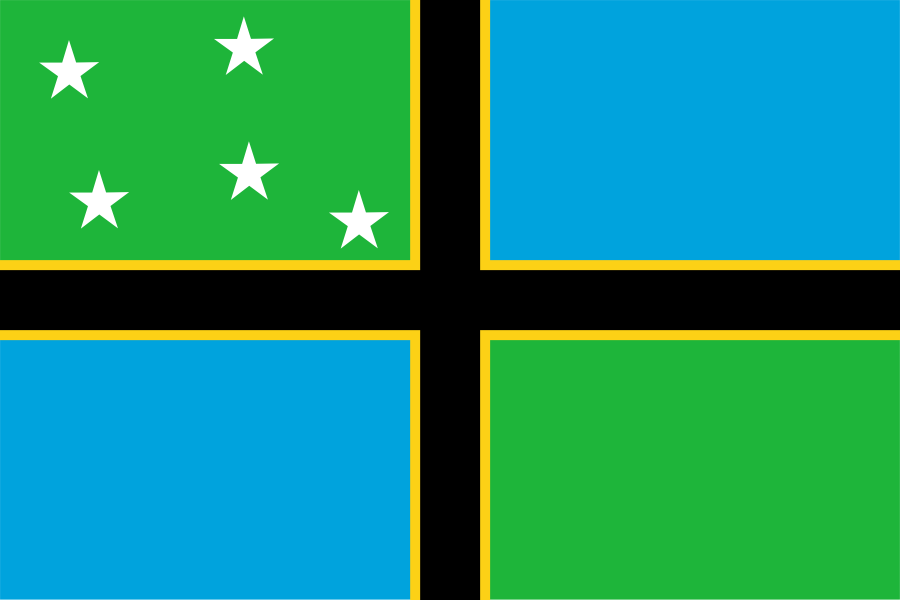lordroel
Administrator
Member is Online
Posts: 67,999 
Likes: 49,402
|
Post by lordroel on Aug 6, 2016 2:39:23 GMT
We can always change it to North Korea as the enemy. Heh, sure can, that worked out well for Homefront and Red 2012 (actually not); but we can have Russia the big bad, though that might depend on who will win the upcoming election but I digress. You forgot Homefront 2 where they are again the enemy of a Free America. |
|
|
|
Post by kubocaskett on Aug 6, 2016 2:59:56 GMT
Heh, sure can, that worked out well for Homefront and Red 2012 (actually not); but we can have Russia the big bad, though that might depend on who will win the upcoming election but I digress. You forgot Homefront 2 where they are again the enemy of a Free America. Yeah I'll admit I did forget but in Hf2's case it's more like some corporation called APEX that calls the shots, "North Korea" is more like it's overglorified security force or something; and yes I did put "North Korea" in quotes because it's more like an ATL version of North Korea where it lost the Korean War but somehow managed to stay independent and simply change to capitalism AND remain friends with the USSR which manages to survive well into the 21st century. I wish I was making this up because the whole retcon thing is absolutely stupid and that (along with having North Korea in the first place) is the reason why I refuse to care about nor take Homefront seriously at all. EDIT: Oh, did I mention that the "sequel" was made by the developers behind the awesome Timsplitters games? talk about insult to injury. |
|
|
|
Post by kubocaskett on Aug 13, 2016 0:14:40 GMT
Another map from yours truly, this time one made for an ATL version of Japan where it becomes a sort of less villainous version of OTL's USSR in a TL called Red Sun Rising (and no it wasn't made by me in case you ask):  |
|
bytor
Chief petty officer
I'm baaaack.
Posts: 132 
Likes: 68
|
Post by bytor on Sept 2, 2016 1:42:53 GMT
 Alyaskan Confederate Republic Alyaskan Confederate RepublicThis is the Flag of the Alyaska Confederate Republic from my Balance of Power timeline (have I posted that here?). It's what happens when the Russian Empire revokes the Russian American Company's charter and ends their subsidies after decades of being a sinkhole for rubles with no return, and the USA doesn't want to purchase it. The RAC's officers return to Russia, leaving behind priests, sailors and promyshlenniki who had intermarried with the Aleuts and occasionally Tlingits. |
|
lordroel
Administrator
Member is Online
Posts: 67,999 
Likes: 49,402
|
Post by lordroel on Sept 2, 2016 7:43:25 GMT
 Alyaskan Confederate Republic Alyaskan Confederate RepublicThis is the Flag of the Alyaska Confederate Republic from my Balance of Power timeline (have I posted that here?). It's what happens when the Russian Empire revokes the Russian American Company's charter and ends their subsidies after decades of being a sinkhole for rubles with no return, and the USA doesn't want to purchase it. The RAC's officers return to Russia, leaving behind priests, sailors and promyshlenniki who had intermarried with the Aleuts and occasionally Tlingits. Nice flag and so far i can tell you have not posted the Balance of Power timeline on this forum. |
|
|
|
Post by ToixStory on Jul 31, 2017 13:49:17 GMT
Still pretty proud of this flag I made for my map of the United Republic of East Africa, an independent nation borne out of German East Africa following a German victory in World War I. It's meant to combine the legacy of Germany in the nation with the cultural identity of the nation as it is at independence.  |
|
lordroel
Administrator
Member is Online
Posts: 67,999 
Likes: 49,402
|
Post by lordroel on Jul 31, 2017 13:51:58 GMT
Still pretty proud of this flag I made for my map of the United Republic of East Africa, an independent nation borne out of German East Africa following a German victory in World War I. It's meant to combine the legacy of Germany in the nation with the cultural identity of the nation as it is at independence. Nice flag. |
|
bytor
Chief petty officer
I'm baaaack.
Posts: 132 
Likes: 68
|
Post by bytor on Aug 9, 2017 18:56:36 GMT
This past long weekend we visited Historic Fort Malden in Amherstburg, Ontario and I found a flag I had not seen before. It was a recreation of one flown from the schooner Anne during one of the failed invasions of Upper Canada during the rebellions of 1837-38. So, naturally I made an image of it. It was for the "Republic of Canada" and the two stars represented Upper and Lower Canada and the crescent moon represented the secret network of Hunters Lodges in Upper Canada and the nearby American States that were formed to support the rebellion. I think that had they been successful they would have joined the USA fairly soon, at least Upper Canada. What do you think?   |
|
lordroel
Administrator
Member is Online
Posts: 67,999 
Likes: 49,402
|
Post by lordroel on Aug 9, 2017 19:10:19 GMT
I think that had they been successful they would have joined the USA fairly soon, at least Upper Canada. What do you think? View AttachmentView AttachmentCould they not survive as independent nations. |
|
stevep
Fleet admiral
Member is Online
Posts: 24,837 
Likes: 13,226
|
Post by stevep on Aug 9, 2017 22:24:33 GMT
I think that had they been successful they would have joined the USA fairly soon, at least Upper Canada. What do you think? Could they not survive as independent nations. I doubt it because either Britain or the US, or both, would move on them. |
|
bytor
Chief petty officer
I'm baaaack.
Posts: 132 
Likes: 68
|
Post by bytor on Aug 11, 2017 15:08:17 GMT
Could they not survive as independent nations. Back then Upper Canada (now southern Ontario) was very important to the Wisconsin territory and the area now known as the Upper Midwest. Ships brought lumber, raw minerals, grains and other agricultural products to ports like Collingwood or Goderich for transshipment to the rest of the USA (usually New York) and often to Great Britain, with a decent reverse flow of manufactured goods from factories. This route maintained its importance to the Upper Midwest economy into the 1870s when the rail network there was finally dense enough so that product no longer had to leave the USA as the fastest and most efficient way to get to the Eastern Seaboard states. From then on, only large volume stuff like minerals and lumber (for which ships and their larger individual capacities were still necessary) continued to be shipped through the Great Lakes though it increasingly stuck to US waters only instead of stopping at Canadian ports unless it was bound for the Canadian market. If the rebellion had been successful in Upper Canada it would have been plum pickings for the USA to take and ensure that valuable economic corridor. Even though the Family Compact and their resistance to "responsible government" was what Mackenzie and his rebels were fighting against, their economic power would still be there after a successful rebellion. Just as they were squeezed out of public life OTL by the reorganisation into the Province of Canada and Governor Charles Thomson's reforms yet still managed to morph into the upper class Tory elite in Canada, I suspect they'd see an analogous transformation in an independent Upper Canada. Even back then the Canadian economy depended on the USA, as things always are for the mouse beside the elephant, and the newly independent Upper Canada government would surely have seen that. It also helps that the newly independent state would have it's government packed with US-friendly rebels who would want to distance themselves from Great Britain to assert their independence. The Family Compact was IOTL nominally pro-monarchy but the fact that Governor Thomson thought it necessary to try and break their hold on Canadian politics shows how they were above all concerned with their own pockets rather than loyalty to the crown. As such, they'd probably support the Rebel's move towards closer ties to the USA, if only to not get hanged for treason at first and later because the economics were undeniable. Thus the question becomes how forcefully would the USA "encourage" Upper Canada to become a state of the Union? The secondary question of that is how annoyed would slaveocrat states be at the thought of another free state as they were already twitchy about the balance and the possibility of slavery being banned from the USA. |
|
lordroel
Administrator
Member is Online
Posts: 67,999 
Likes: 49,402
|
Post by lordroel on Aug 11, 2017 15:11:16 GMT
Could they not survive as independent nations. Back then Upper Canada (now southern Ontario) was very important to the Wisconsin territory and the area now known as the Upper Midwest. Ships brought lumber, raw minerals, grains and other agricultural products to ports like Collingwood or Goderich for transshipment to the rest of the USA (usually New York) and often to Great Britain, with a decent reverse flow of manufactured goods from factories. This route maintained its importance to the Upper Midwest economy into the 1870s when the rail network there was finally dense enough so that product no longer had to leave the USA as the fastest and most efficient way to get to the Eastern Seaboard states. From then on, only large volume stuff like minerals and lumber (for which ships and their larger individual capacities were still necessary) continued to be shipped through the Great Lakes though it increasingly stuck to US waters only instead of stopping at Canadian ports unless it was bound for the Canadian market. If the rebellion had been successful in Upper Canada it would have been plum pickings for the USA to take and ensure that valuable economic corridor. Even though the Family Compact and their resistance to "responsible government" was what Mackenzie and his rebels were fighting against, their economic power would still be there after a successful rebellion. Just as they were squeezed out of public life OTL by the reorganisation into the Province of Canada and Governor Charles Thomson's reforms yet still managed to morph into the upper class Tory elite in Canada, I suspect they'd see an analogous transformation in an independent Upper Canada. Even back then the Canadian economy depended on the USA, as things always are for the mouse beside the elephant, and the newly independent Upper Canada government would surely have seen that. It also helps that the newly independent state would have it's government packed with US-friendly rebels who would want to distance themselves from Great Britain to assert their independence. The Family Compact was IOTL nominally pro-monarchy but the fact that Governor Thomson thought it necessary to try and break their hold on Canadian politics shows how they were above all concerned with their own pockets rather than loyalty to the crown. As such, they'd probably support the Rebel's move towards closer ties to the USA, if only to not get hanged for treason at first and later because the economics were undeniable. Thus the question becomes how forcefully would the USA "encourage" Upper Canada to become a state of the Union? The secondary question of that is how annoyed would slaveocrat states be at the thought of another free state as they were already twitchy about the balance and the possibility of slavery being banned from the USA. Would the United Kingdom accept that parts of Canada join the United states of America. |
|
stevep
Fleet admiral
Member is Online
Posts: 24,837 
Likes: 13,226
|
Post by stevep on Aug 11, 2017 17:13:23 GMT
Back then Upper Canada (now southern Ontario) was very important to the Wisconsin territory and the area now known as the Upper Midwest. Ships brought lumber, raw minerals, grains and other agricultural products to ports like Collingwood or Goderich for transshipment to the rest of the USA (usually New York) and often to Great Britain, with a decent reverse flow of manufactured goods from factories. This route maintained its importance to the Upper Midwest economy into the 1870s when the rail network there was finally dense enough so that product no longer had to leave the USA as the fastest and most efficient way to get to the Eastern Seaboard states. From then on, only large volume stuff like minerals and lumber (for which ships and their larger individual capacities were still necessary) continued to be shipped through the Great Lakes though it increasingly stuck to US waters only instead of stopping at Canadian ports unless it was bound for the Canadian market. If the rebellion had been successful in Upper Canada it would have been plum pickings for the USA to take and ensure that valuable economic corridor. Even though the Family Compact and their resistance to "responsible government" was what Mackenzie and his rebels were fighting against, their economic power would still be there after a successful rebellion. Just as they were squeezed out of public life OTL by the reorganisation into the Province of Canada and Governor Charles Thomson's reforms yet still managed to morph into the upper class Tory elite in Canada, I suspect they'd see an analogous transformation in an independent Upper Canada. Even back then the Canadian economy depended on the USA, as things always are for the mouse beside the elephant, and the newly independent Upper Canada government would surely have seen that. It also helps that the newly independent state would have it's government packed with US-friendly rebels who would want to distance themselves from Great Britain to assert their independence. The Family Compact was IOTL nominally pro-monarchy but the fact that Governor Thomson thought it necessary to try and break their hold on Canadian politics shows how they were above all concerned with their own pockets rather than loyalty to the crown. As such, they'd probably support the Rebel's move towards closer ties to the USA, if only to not get hanged for treason at first and later because the economics were undeniable. Thus the question becomes how forcefully would the USA "encourage" Upper Canada to become a state of the Union? The secondary question of that is how annoyed would slaveocrat states be at the thought of another free state as they were already twitchy about the balance and the possibility of slavery being banned from the USA. Would the United Kingdom accept that parts of Canada join the United states of America. Very unlikely if the annexation wasn't widely supported in the relevant regions. Quite possibly even if there was support. Given the relative loss of face that would be involved. |
|
oalexis
Seaman
Membre éminant de la République Fédérale de Bourgogne-Franche-Comté
Posts: 21 
Likes: 0
|
Post by oalexis on Nov 5, 2017 11:29:55 GMT
Here's a flag for a random authoritarian country I made a while back:  |
|
lordroel
Administrator
Member is Online
Posts: 67,999 
Likes: 49,402
|
Post by lordroel on Nov 5, 2017 11:33:20 GMT
Here's a flag for a random authoritarian country I made a while back: View AttachmentWhat is the country called. |
|






 Alyaskan Confederate Republic
Alyaskan Confederate Republic


